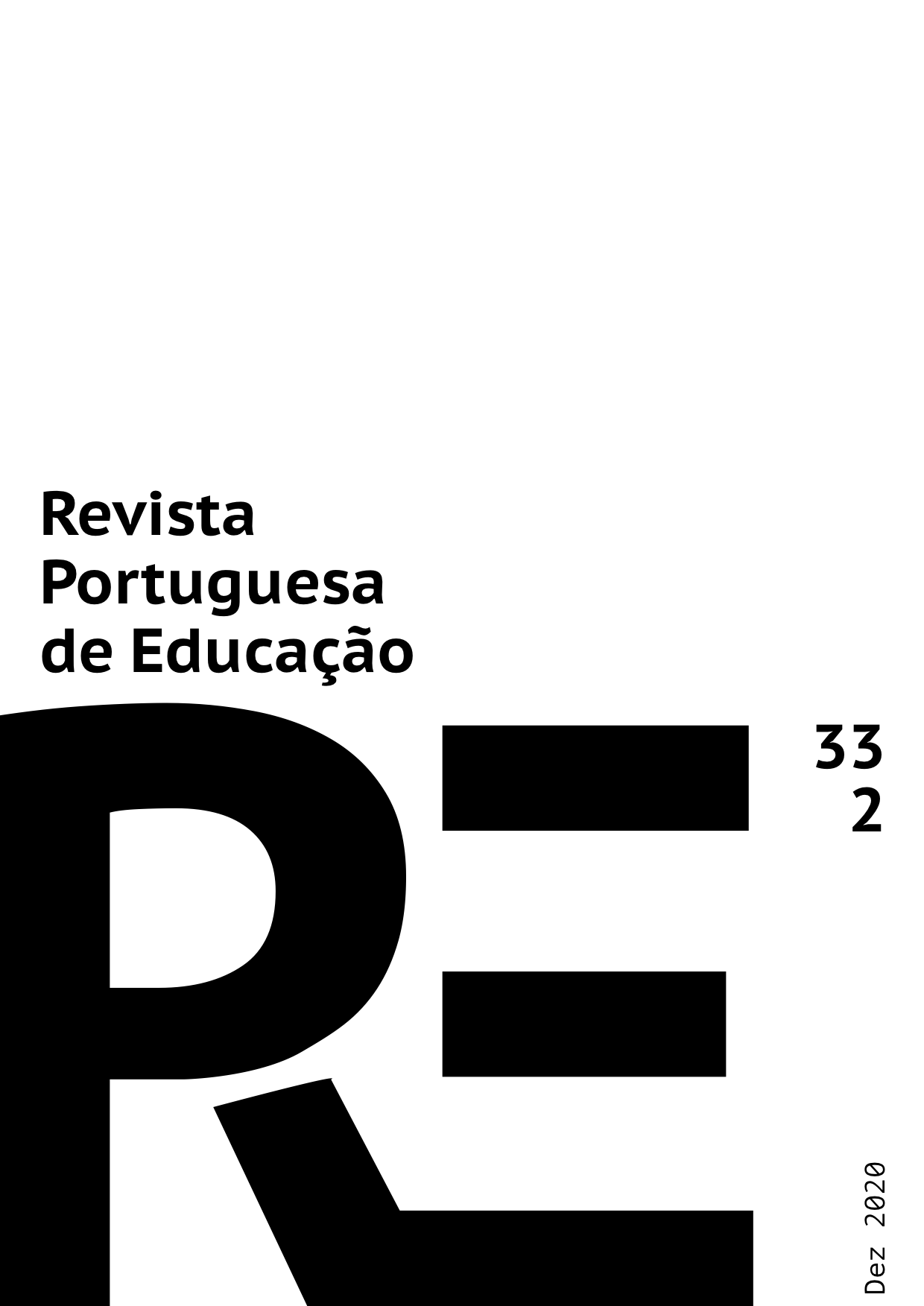Relation aux sujets en recherche biographique en éducation
DOI:
https://doi.org/10.21814/rpe.19731Palavras-chave:
Investigação biográfica em educação; postura; sujeito; poder agir.Resumo
Esta contribuição visa questionar a relação do investigador com os atores-sujeitos da investigação, a partir da especificidade da investigação biográfica em educação. A análise apoia-se numa investigação realizada com vários grupos de jovens do ensino básico, através de entrevistas biográficas coletivas e individuais, e de narrativas escritas, centradas no seu percurso escolar. A investigação teve duas finalidades: compreender as modalidades de subjetivação do seu percurso escolar e de orientação; transformar uma situação em que os alunos apresentam dificuldades, através da apropriação do seu percurso de orientação e da cooperação. Trata-se de apresentar o dispositivo usado, o seu quadro epistemológico e metodológico, para analisar os seus efeitos e compreender os desafios que se colocam na relação entre o investigador e os atores-sujeitos em investigação biográfica. Procuramos evidenciar que as especificidades deste campo de investigação convidam, por um lado, a inscrever a pesquisa no espaço de um reencontro simétrico, espaço de autorização, propício ao desenvolvimento do poder agir dos atores e, por outro lado, a desenvolver uma postura empática garante do respeito pelos atores e pela sua autonomização.
Downloads
Referências
Bruner, J. (2010). Pourquoi racontons-nous des histoires ? Paris : Retz.
Delory-Momberger, C. (2014). De la recherche biographique en éducation. Fondements, méthodes, pratiques. Paris : Téraèdre.
Delory-Momberger, C. (2009). La condition biographique. Essais sur le récit de soi dans la modernité avancée. Paris : Téraèdre.
Dominicé, P. (1999). La compétence d’apprendre à l’âge adulte : lectures biographiques des acquis de la scolarité. Cahiers de la section des sciences de l’éducation, 87, pp. 1-21.
Janner, M. (2019). Empathie. In C. Delory-Momberger (coord.) Vocabulaire des histoires de vie et de la recherche biographique (pp.72-75). Toulouse : Érès.
Larrosa, J. (1998). Apprendre et être. Paris : ESF.
Le Bouëdec, G. (2007). Tous accompagnateurs ? Non : il n’y d’accompagnement que spirituel. In J.-P. Boutinet, (dir.). Penser l’accompagnement adulte (pp. 169-188). Paris : Presses Universitaires de France.
M’Biatong, J. (2019). La recherche biographique en éducation pour l’éthique. In A. Dizerbo, & J. M’Biatong, (coord.). Pour une éthique de l’accompagnement biographique, pp. 129-152. Paris : Téraèdre.
Rhéaume, J. (2019). Pouvoir d’agir. Empowerment. In C. Delory-Momberger, (coord.) Vocabulaire des histoires de vie et de la recherche biographique (pp. 127-129). Toulouse : Érès.
Ricoeur, P. (1990). Soi-Même comme un autre. Paris : Seuil.
Tap, P. (1980). Identité individuelle et personnalisation. Toulouse : Privat.
Downloads
Publicado
Como Citar
Edição
Secção
Licença
1. Autores conservam os direitos de autor e concedem à revista o direito de primeira publicação, com o trabalho simultaneamente licenciado sob a Licença Creative Commons Attribution 4.0 CC-BY-SA que permite a partilha do trabalho com reconhecimento da autoria e publicação inicial nesta revista;
2. Autores e autoras têm autorização para assumir contratos adicionais separadamente para distribuição não-exclusiva da versão do trabalho publicada nesta revista (ex.: depositar em repositório institucional ou como capítulo de livro), com reconhecimento de autoria e publicação inicial nesta revista;
3. Autores e autoras têm permissão e são estimulado/as a publicar e distribuir o seu trabalho online (ex.: em repositórios institucionais ou na sua página pessoal), já que isso pode aumentar o impacto e a citação do trabalho publicado (Veja O Efeito do Acesso Livre).
Esta obra está licenciada sob uma Licença Creative Commons - Atribuição Compartilhamento pela mesma Licença Internacional 4.0




















